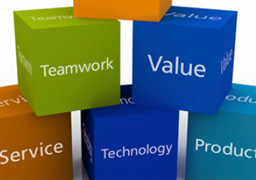




 |
 |
 |
|||
 |
 |
 |
 |
 | |
 |
 |
 | |


| 미디어 브리핑스 | 내서재담기 |


  |
 |  |
최신 연구 결과들을 ‘조직과 개인의 성과’를 향상시키기 위해 어떻게 활용할 수 있을까? 리서치 기관과 연구소에서 제안하는 하이라이트(Highlight)와 핵심 아이디어(Ideas)를 소개해드립니다.
* *
자동화? 모든 서비스 회사에 만병통치약 아냐
최신 연구에 따르면 모든 유형의 서비스 회사가 자동화에 똑같이 적합한 것은 아니다. 기관이나 기업이 인공지능과 기타 유관 기술을 사용하여 성능을 개선하고 인건비를 낮추며 수익성을 개선하려는 유혹은 충분히 이해할 수 있는 일이다. 그러나 인간 직원의 일자리를 위험에 빠뜨릴 수 있는 자동화를 추구하기 전에 비즈니스 운영진은 그 시도를 신중하게 재고해야한다. 이것이 바로 렌셀러 폴리테크닉 대학교(Rensselaer Polytechnic Institute)의 연구진이 ‘서비스 관리 분야의 AI 및 기계 학습’에 관해 「저널 오브 서비스 매니지먼트(the Journal of Service Management)」 특별호에 발표한 결론이다. 더불어 연구진은 이렇게 말했다.
“AI는 인간에게 고유한 업무에 대해 우리의 아이디어를 뒤집을 수 있는 잠재력을 가지고 있습니다. 하지만 그것이 제대로 구현되지 않거나 전략적으로 부적절한 서비스로 자동화되는 경우 이는 고객을 소외시킬 수 있고, 장기적으로 이는 비즈니스에 큰 피해를 끼칠 수 있습니다.”
즉, 자동화 또는 AI를 사용하기 위한 선택은 전략적 결정이 되어야 한다! 비즈니스가 상당한 양의 휴먼 인터랙션을 제공함으로써 경쟁하는 서비스 분야이거나, 클라이언트에서 클라이언트로 변화하는 다양한 서비스를 제공하는 경우, 휴먼 프로페셔널을 AI 기술로 대체할 때 그 성공률은 낮아질 것이다. 반면 고객의 선택과 상호 작용을 제한하는 서비스 분야에서의 자동화는 더 큰 성공을 거둘 수 있는 기회를 누릴 수 있다.
AI 기반 자동화로의 전환을 고려중인 비즈니스 리더는 지식 자원 관리 전략을 신중하게 조사해야한다. 기업이 AI에 투자하기 전에 인간의 판단과 디지털 기술 및 알고리즘과의 상호 작용을 대체하는 것이 전략적으로 건전한 아이디어인지를 이해해야 하는 것이다.
모든 형태의 지식과 마찬가지로 AI와 모든 형태의 서비스 자동화는 그들만의 자리를 치지한다. 이때 관리자들에게는 그 자리가 어디인지를 알 수 있는 좋은 모델이 필요하다. 연구진은 고객 기반을 구축하고 유지하는 데 신뢰와 평판이 중요한 요소 비즈니스에서는 사람들은 자동화된 기술보다는 사람이 더 효과적일 것으로 판단한다. 반대로, 특히 인간의 편견(bias)들이 서비스 제공에 해가 되는 영역인 경우, AI는 회사가 사용하기에 상대적으로 더 나은 도구가 될 것이다.
결과적으로 수많은 기업들은 효과적으로 경쟁하기 위해 다양한 인력 기술과 자동화를 혼합하여 사용할 것 같다. 매우 정교한 작업을 처리 할 수 있는 AI조차도 일반적으로 사람과 함께 했을 때 가장 잘 작동되고, 그 반대의 경우도 마찬가지이다.
따라서 자동화와 인력을 함께 사용할 수 있고, 그렇게 사용해야하며, 자동화의 범위는 비즈니스에 대한 고객의 전략적 접근 방식과 부합되어야 할 것이다.
- Journal of Service Management, March 22, 2020, “From automats to algorithms: the automation of services using artificial intelligence,” by Chris Meyer, et al. ⓒ 2020 Emerald Publishing Limited. All rights reserved.
To view or purchase this article, please visit:
https://www.emerald.com/insight/content/doi/10.1108/JOSM-05-2019-0161/full/html
* *
왜 독살스러운 성격이 커리어에서 승리하는가?
‘독살스러운 성격’은 진실은 매우 가볍게 받아들이면서 탐욕스럽게, 뻔뻔하게, 불공정하게 행동하는 사람들을 설명하는 데 사용되는 용어이다. 본대학교(University of Bonn)의 연구자들은 최근 「성격과 개인차(Personality and Individual Differences)」 저널에 왜 그러한 사람들이 그들의 커리어에서 여전히 성공할 수 있는지를 설명했다.
그것은 최고로 이끌어주는 중요한 요소 중 하나가 바로 사회적 기술(social skill)이기 때문이다. 사회적 기술은 그 자체로 직장 현장에서 좋은 것이다. 그것은 닫힌 문을 열고 일상의 스트레스에 대처할 수 있도록 도움을 준다. 그러나 그것은 또한 ‘다른 사람들을 속이거나’, ‘신뢰를 남용하거나’, ‘속임수를 숨기는, 겉으로 보기에는 그 자체로 무해한 것으로 포장하는’ 데 사용될 수 있다. 연구자들은 사회적으로 능숙하다고 동료들이 생각하는 이 ‘독살스러운 성격’의 사람들이 상사들로 하여금 그들이 더 유능한 것으로 간주되어 더 높은 계층적 지위를 차지한다고 결론을 내렸다. 이것이 의미하는 바는, 우리가 사회적 기술이 양날의 칼이 될 수 있다는 생각에 익숙해 져야한다는 것이다.
성격 테스트에서 ‘독살스러운’ 사람은 ‘정직’과 ‘겸손’ 영역에서 낮은 점수를 기록한다. 이러한 유형의 사람들은 항상 자신에게 집중하는 경향을 갖고 있다. 그러나 양호한 사회적 기술을 이용하여 다른 사람들을 속일 수 있다.
반면에, 정직하고 겸손한 사람들은 그들이 속한 팀에게 진정한 기쁨을 준다. 이들은 합리적으로 행동하고 동료들이 자신의 성공을 공유 할 수 있도록 한다.
본대학교의 심리학자들은 다양한 업무 팀들과의 인터뷰를 통해 그러한 현상을 조사했다. 우선 참가자들은 익명의 온라인 설문 조사를 작성하고 ‘정직’과 ‘겸손’의 특성에 대해 스스로를 평가했다. 이후, 동료들이 참가자의 사회적 기술에 대한 정보를 제공했다. 참가자의 상사들은 그들의 업무 성과를 평가했다. 연구진은 이렇게 직원들, 동료들, 상사들을 하나로 구성하여, 총 203가지 데이터를 수집할 수 있었다.
결과가 어떠했을까? 정직과 겸손에 대한 가치가 낮은 사람들이 그들 성격의 ‘독살스러운’ 부분들과 사회적 기술의 어두운 면, 즉 속임수, 위장, 기만과 균형을 이룰 때, 자신들의 커리어에서 성공할 수 있다는 것이었다.
이러한 연구 결과를 조직과 팀은 어떻게 활용해야 할까? 할 수 있습니까? 독살스러운 성격의 상승 속도를 늦추려면, 실질적인 성과에 대해 더 많은 주의를 기울이고, 직원을 선발하고 평가할 때 ‘좋은 인상’에는 덜 집중해야 한다는 것이다. 그러나 이것은 어려운 일로, 특히 영업 및 판매, 리더십의 직책과 같이 사람들의 관심을 불러일으키고 자극해야하는 일이 핵심인 경우에는 더욱 그렇다. 또한 아마도 ‘독살스러운 성격’과 연관되어 고객 충성도뿐만 아니라 결근 및 이직률을 검토하는 것도 합리적일 것이다.
- Personality and Individual Differences, April 2020, Vol. 156, “Why Dark Personalities Can Get Ahead: Extending the Toxic Career Model,” by Mareike Kholin, Bastian Kuckelhaus, Gerhard Blickle. ⓒ 2020 Elsevier Ltd. All rights reserved.
To view or purchase this article, please visit:
https://www.sciencedirect.com/science/article/abs/pii/S0191886919307317?via%3Dihub
 |  |
Research Highlights
How can you use the findings from the latest research studies to improve your performance and the performance of your organization? We’ll provide the highlights and key ideas you won’t get anywhere else.
**
Research shows that not all types of service firms are equally suited to automation.
The temptation for businesses to use artificial intelligence and other technology to improve performance, drive down labor costs, and better the bottom line is understandable. But before pursuing automation that could put the jobs of human employees at risk, it is essential that business owners take careful stock of their operations.” That’s the conclusion of researchers at Rensselaer Polytechnic Institute published in a special issue of the Journal of Service Management on “AI and Machine Learning in Service Management.”
The researchers go on to say, “AI has the potential to upend our ideas about what tasks are uniquely suited to humans, but poorly implemented or strategically inappropriate service automation can alienate customers, and that will hurt businesses in the long term.”
The choice to use automation or AI needs to be a strategic decision. If a business competes by offering a substantial amount of human interaction or has a range of service offerings that change from client to client, the company will have a lower success rate in replacing human professionals with AI technologies. On the other hand, businesses that limit customer choice and interaction will see greater success if they choose to automate.
Business leaders considering a switch to AI-based automation must carefully examine their strategies for managing knowledge resources. Before companies invest in AI, they need to understand whether replacing human judgment and interaction with digital technologies and algorithms is a strategically sound idea.
Like any form of knowledge, AI, and all forms of service automation have their place, but managers need good models to know where that place is.
Furthermore, the researchers determined that in businesses where trust and reputation are critical factors in building and maintaining a client base, people will be more likely to be effective than automated technologies. Conversely, in areas where human biases are particularly harmful to the service provision, AI will be a relatively better tool for companies to employ.
As a result, many businesses will ultimately be using a mix of people skills and automation to compete effectively. Even AI, which can handle very sophisticated tasks, typically works best alongside humans - and vice versa.
Therefore, automation and human workers can and should be used together, and the extent of automation must fit with the business’s strategic approach to customers.
References
- Journal of Service Management, March 22, 2020, “From automats to algorithms: the automation of services using artificial intelligence,” by Chris Meyer, et al. ⓒ 2020 Emerald Publishing Limited. All rights reserved.
To view or purchase this article, please visit:
https://www.emerald.com/insight/content/doi/10.1108/JOSM-05-2019-0161/full/html
**
“Toxic personality” is a term used to describe people who behave greedily, immodestly, and unfairly while taking the truth very lightly. Researchers at the University of Bonn recently explained why such people can still succeed in their careers in the journal “Personality and Individual Differences.”
It’s because one of the critical factors that lead to the top is a social skill. Social skills are in themselves a good thing in the workplace. They can open locked doors and help us to cope with daily stress. But they can also be used to deceive others, abuse trust, or construct a facade of harmlessness beyond which lurks deceitfulness. The research team determined that toxic personalities who are considered socially adept by their colleagues were considered more capable by their superiors and occupied a higher hierarchical position. That means we have to get used to the idea that social skills can be a double-edged sword.
In personality tests, “toxic” persons have low scores in the categories of “honesty” and “modesty.” And such personalities tend to focus on themselves all the time. However, Good social skills enable them to deceive others.
On the other hand, those who are distinctly honest and modest are a real joy for their teams. And such individuals behave reasonably and allow colleagues to share in their successes.
The psychologists at the University of Bonn investigated the phenomenon by interviewing various work teams: First, the participants completed an anonymous online survey and assessed themselves on the characteristics of “honesty” and “modesty,” among others. Then colleagues provided information on the social skills of the participant. The participant’s supervisors then gave an appraisal of their work performance. The researchers were able to collect data from a total of 203, such as “trios” of employees, colleagues, and superiors.
The results showed that workers with low values for honesty and modesty could nonetheless succeed in their careers if they balance the toxic parts of their personality with trickery, disguise, and deception, which are the dark side of social skills.”
But how can companies and teams use these findings? To slow down the ascent of toxic personalities, more attention should be paid to actual performance and less to “good impressions” when selecting staff and making assessments. This is particularly difficult in activities where it is essential to impress and arouse interest, such as in sales or leadership positions. Here, it makes sense to also look at the absenteeism and turnover rate of subordinates as well as customer loyalty associated with the possibly “toxic personality.”
References
- Personality and Individual Differences, April 2020, Vol. 156, “Why Dark Personalities Can Get Ahead: Extending the Toxic Career Model,” by Mareike Kholin, Bastian Kuckelhaus, Gerhard Blickle. ⓒ 2020 Elsevier Ltd. All rights reserved.
To view or purchase this article, please visit:
https://www.sciencedirect.com/science/article/abs/pii/S0191886919307317?via%3Dihub
